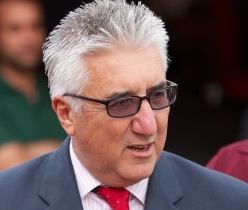The United States Ambassador to Ghana, Gene A. Cretz, has stipulated the decision to privatise the Electricity Company of Ghana, if need be, would exclusively be dependent on Ghana’s government.
In August 2014, the Millennium Challenge Corporation signed the Ghana Power Compact, a deal recorded in history as the largest US Government funded transaction of President Obama’s Power Africa initiative - designed to double access to power on the African continent.
The Compact, a five-year $498 million deal is to support the transformation of Ghana’s power sector, and make it “more financially viable to meet the current and future needs of households and businesses,” according to the US State Department.
As part of the conditions leading to the commitment between both the MCC and the Ghana government, an agreement seeking the introduction of Private Sector Participation into ECG’s management was reached, causing public outrage, especially among policy think tanks and staff of the state-owned power company who have expressed fears the Compact under the supervision of the United States would influence a private sector takeover.
Meanwhile, Cretz, addressing Starr News at a press roundtable briefing where he shared highlights of the US-Ghana relationship in the Year 2014, said his government although committed to helping transform “ECG into a first class power utility” explained the compact only required the introduction of PPP not a takeover.
“Because we have seen from experience that other countries that have been in this position of having a public sector utility, when they wanted to improve the situation needed to engage in a Private sector Public Partnership, the introduction of the private sector participation into ECG’s management and participation is just one of the investment conditions that’s necessary to ensure that the almost $500 million is going to have the dramatic impact that both we and the Ghanaian government want,” he remarked.
According to him, his government will not impose methods on the country but will follow Ghana’s lead on the direction of the projects specified for generating a more robust energy sector.
“One of the conditions under which the MCC needs to move forward is that there is a decision by the government as to which option they would want to take, but that has not been decided yet.
“But I think over the next couple of weeks, they will have the results of the report which will give them the various options that are open, and they’ll give them the consequences of each action and at the end of the day we will have a decision by the President as to which way we would want to go with respect to ECG and then we’ll move on from there,” he added.
The Millennium Challenge Corporation is an innovative and independent U.S. foreign aid agency that is helping lead the fight against global poverty. It has been created by the United States Congress and is distinct in the delivery of its objectives, by focusing on good policies, country ownership and consistent attainment of results.
Beneficiary countries of the MCC are selected through a competitive process, followed by a country-led solutions and country-led implementation. The MCC provides large-scale grants to fund these country-led solutions.
General News of Monday, 22 December 2014
Source: starrfmonline.com
US won't impose ECG privatisation on Ghana – Ambassador Cretz













